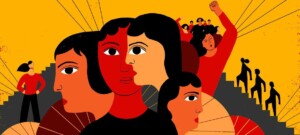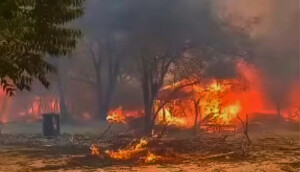HUDO reports increase in crime in Sudan’s Blue Nile, Nuba Mountains
Tribal fighting, armed robberies and kidnappings increased in southern Sudan this year, says the Sudanese Human Rights and Development Organisation (HUDO). In most cases, the authorities did not act.
In its recent report on human rights violations in Blue Nile state and the Nuba Mountains in South Kordofan between January-June 2021, the Kampala-based HUDO Centre covers violent incidents that occurred in particular in the government-controlled territories.
 Kadugli, capital of South Kordofan (Social media)
Kadugli, capital of South Kordofan (Social media)
Tribal fighting, armed robberies and kidnappings increased in southern Sudan this year, says the Sudanese Human Rights and Development Organisation (HUDO). In most cases, the authorities did not act.
In its recent report on human rights violations in Blue Nile state and the Nuba Mountains in South Kordofan between January and June 2021, the Kampala-based HUDO Centre covers violent incidents that occurred in particular in the government-controlled territories.
According to the report, “armed robbery and tribal conflicts increased, raising the number of death and injuries. Also, new kind of violations emerged like kidnapping individuals for a ransom. All these violations met with limited or no intervention from the authorities.”
During the first half of this year, HUDO’s “trained human rights monitors” recorded nine arbitrary arrests, 20 killings, two rapes, a religious rights violation, and 32 other violent incidents (assaults, armed robberies, kidnaps) in the two states. Yet, many other incidents may have occurred without being registered, the human rights watchdog notes.
Armed robberies were mainly recorded in the vicinity of Kadugli, the capital of South Kordofan and the eastern part of South Kordofan. “This can be attributed to the presence of very many troops of the RSF [Rapid Support Forces], PDF [Popular Defence Forces] and other militias,” the report states.
The Popular Defence Forces (PDF) was established after Omar Al Bashir’ took power in a military coup in June 1989. The militia was defined by the regime as a semi-military force of Sudanese citizens. PDF members received training, uniforms, weapons, and food, but no salaries. They played a major role in the distribution of weapons to, and military training for, tribal militias.
After the ousting of President Al Bashir in April 2019, the militia remained operational until mid-2020, when it was officially dissolved. Yet, its members in South Kordofan reportedly continue harassing and attacking citizens in the region.
The paramilitary Rapid Support Forces (RSF) was set up by the ousted Al Bashir regime in 2013 to fight against the armed movements in the country.
Officially, the militia was integrated into the Sudan Armed Forces (SAF) two years ago. In the August 2019 Constitutional Charter it was agreed that both the army and the RSF will fall under SAF command. At the same time however, the militia stayed a force unto intself, commanded by Mohamed Dagalo ‘Hemeti’, Vice-President of Sudan’s Sovereignty Council.











 and then
and then